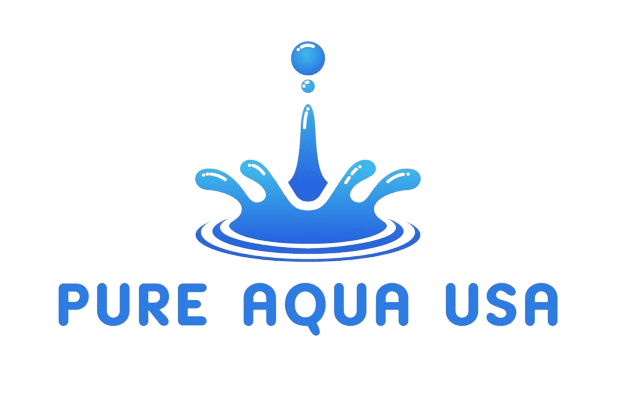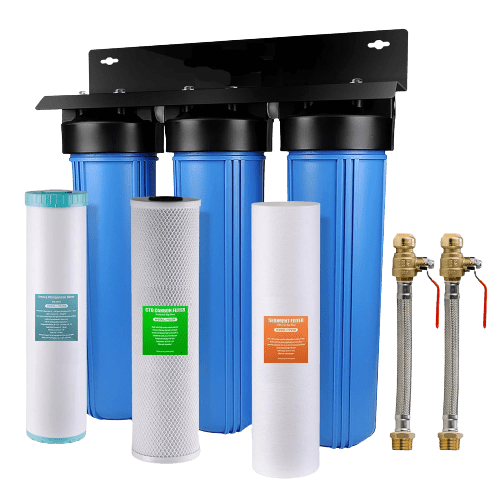Your cart is currently empty!
Salt-Free Water Softeners
$1,099.00 – $1,345.00
Salt-free water softeners are innovative water treatment systems designed to reduce the negative effects of hard water without using salt or the typical ion exchange process. Instead of removing minerals from the water, salt-free systems transform the structure of calcium and magnesium ions through a process known as Template Assisted Crystallization (TAC). This transformation prevents these minerals from accumulating as limescale, effectively addressing the issues associated with hard water while preserving beneficial minerals. Salt-free water softeners offer a low-maintenance, eco-friendly solution for improving water quality throughout the home.
- Description
- Additional information
- Installation
- Replacement Parts
- Maintenance
- Q&A
- Advantages and Disadvantages
- Applications
- Downloads
- Drawings
- Reviews (0)
Description
A salt-free water softener system is an innovative and environmentally friendly solution for treating hard water. Unlike traditional salt-based water softeners, which use ion exchange to remove minerals such as calcium and magnesium from water, salt-free systems operate through a process known as Template Assisted Crystallization (TAC).
The TAC process works by transforming the hardness-causing minerals into microscopic crystals that are unable to adhere to surfaces. These crystals are then flushed out of the system with the wastewater, resulting in softened water without the need for salt or chemicals.
One of the key benefits of salt-free water softeners is their low maintenance requirements. Unlike salt-based systems, which necessitate regular salt replenishment and regeneration cycles, salt-free systems require minimal upkeep, making them a convenient and cost-effective option for homeowners.
In addition to their low maintenance needs, salt-free water softeners also offer several other advantages. They help prevent scale buildup in pipes and appliances, thereby prolonging the lifespan of household fixtures and reducing the need for costly repairs. Furthermore, salt-free softeners are a more eco-friendly choice, as they do not discharge excess salt into the environment or consume large amounts of water during the regeneration process.
Another noteworthy feature of salt-free water softeners is their ability to preserve the beneficial minerals present in water, such as calcium and magnesium. Unlike salt-based systems, which remove these minerals along with the hardness-causing ones, salt-free softeners retain the essential elements, ensuring that the softened water remains healthy and safe for consumption.
When considering the installation of a salt-free water softener, it is essential to select a system that meets the specific needs of your household. Factors to consider include water hardness levels, flow rate requirements, and the size of the property. Consulting with a water treatment professional can help determine the most suitable salt-free softener for your home.
In conclusion, salt-free water softeners offer a sustainable and efficient solution for addressing the issues associated with hard water. With their low maintenance, environmental friendliness, and ability to preserve essential minerals, these systems provide a reliable way to enjoy the benefits of softened water without the drawbacks of traditional salt-based softeners.
One additional point to consider is the potential health benefits associated with using a salt-free system. While the health effects of consuming softened water are still debated, some people believe that retaining the natural minerals in water can contribute to overall health and well-being.
Moreover, salt-free water softeners can be particularly beneficial for individuals on low-sodium diets or those with specific health concerns, as they do not add extra sodium to the water. This can be an important consideration for households where reducing sodium intake is a priority.
It’s important to note that while salt-free water softeners are effective at reducing the negative effects of hard water, they may not provide the same level of “slippery” feel that some people associate with traditional salt-based softeners. This is due to the fact that the mineral content in water is not completely removed in salt-free systems, as it is in salt-based ones. However, many users find that the improvements in water quality and the reduction in scale buildup are well worth the trade-off.
When it comes to installation and maintenance, salt-free water softeners are generally simpler and more cost-effective to set up and operate than traditional salt-based systems. With no need for salt replacement or regeneration cycles, ongoing maintenance is minimal, making salt-free softeners an attractive option for homeowners looking for a hassle-free solution to hard water issues.
Ultimately, the decision to invest in a salt-free water softener depends on your specific water quality concerns, household needs, and environmental considerations. It’s always a good idea to consult with a water treatment professional who can assess your individual situation and provide personalized recommendations.
In the first inline filter, a 5 Micron Pleated Sediment Filter is used to eliminate any visible particulate matter and debris. This important first step in the filtration process ensures clean water flows easily to the next stage and extends the life of the carbon filter. The 20” pleated sediment filter offers double the filtering capacity and filter life compared to standard filters. Additionally, it can be washed several times before replacement, especially in areas with heavy sediment.
For Stage 2 or second inline filter, the focus is on addressing the damaging effects of hard water scale. This scale can be highly destructive to household plumbing and appliances. The eSoft Salt-Free Softeners are designed to prevent future scale and remove existing hard water scale without the need for salt, electricity, or maintenance. The technology behind these softeners, called Template Assisted Crystallization (TAC), works through a physical alteration process that retains essential minerals in the water while eliminating the effects of hard water scale.
Compared to traditional salt-based water softeners, the eSoft Salt-Free Water Softener System not only prevents future scale buildup but also effectively descales existing hard water scale. This system offers environmental advantages, such as no water waste, no slippery feel, and the preservation of healthy minerals in the water. It also avoids the drawbacks of salt-based softeners, making it a compelling alternative for water treatment, particularly in areas where salt-based softeners are banned.
In summary, salt-free water softeners offer a compelling alternative to traditional salt-based systems, providing effective hard water treatment, environmental benefits, and potential health advantages. By addressing the drawbacks of hard water without introducing additional salt or chemicals into the water supply, these innovative systems offer a sustainable and convenient solution for homeowners seeking high-quality, softened water.
Additional information
| Weight | 34 lbs |
|---|---|
| Dimensions | 30 × 10 × 22 in |
| Color | BL (Blue), BK (Black, CL (Clear) |
| Replacement Filters (4-Pack) | No, Yes |
Installation
Replacement Parts
Maintenance
Q&A
Advantages and Disadvantages
Applications
Downloads
Drawings
Only logged in customers who have purchased this product may leave a review.




Reviews
There are no reviews yet.